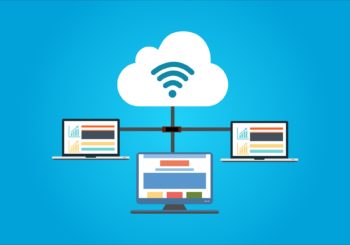
Your bank often can not reclaim money stolen from your bank account due to fraud or cybercrime. That means if money gets drafted from your business bank account from a hacker, phishing attack, identity theft or by any other means, you have little to no chance of getting it back.
This often comes as a surprise to businesses who think the FDIC will “save” them from getting their accounts wiped out, and can get the money back once taken. The reality is that the FDIC insurance is to protect you from bank failure, NOT fraud. So if your debit card or account information gets accessed by a hacker and you don’t notice it within the same day, you can pretty much kiss that money goodbye.
Recent studies have shown that 83% of small businesses take no formal measures against cyber threats even though almost half of all attacks are aimed at them.
Here are 5 essential steps you can take right now to protect your business:
Enforce A Strict Company Password Policy. This is a simple step, but i...




